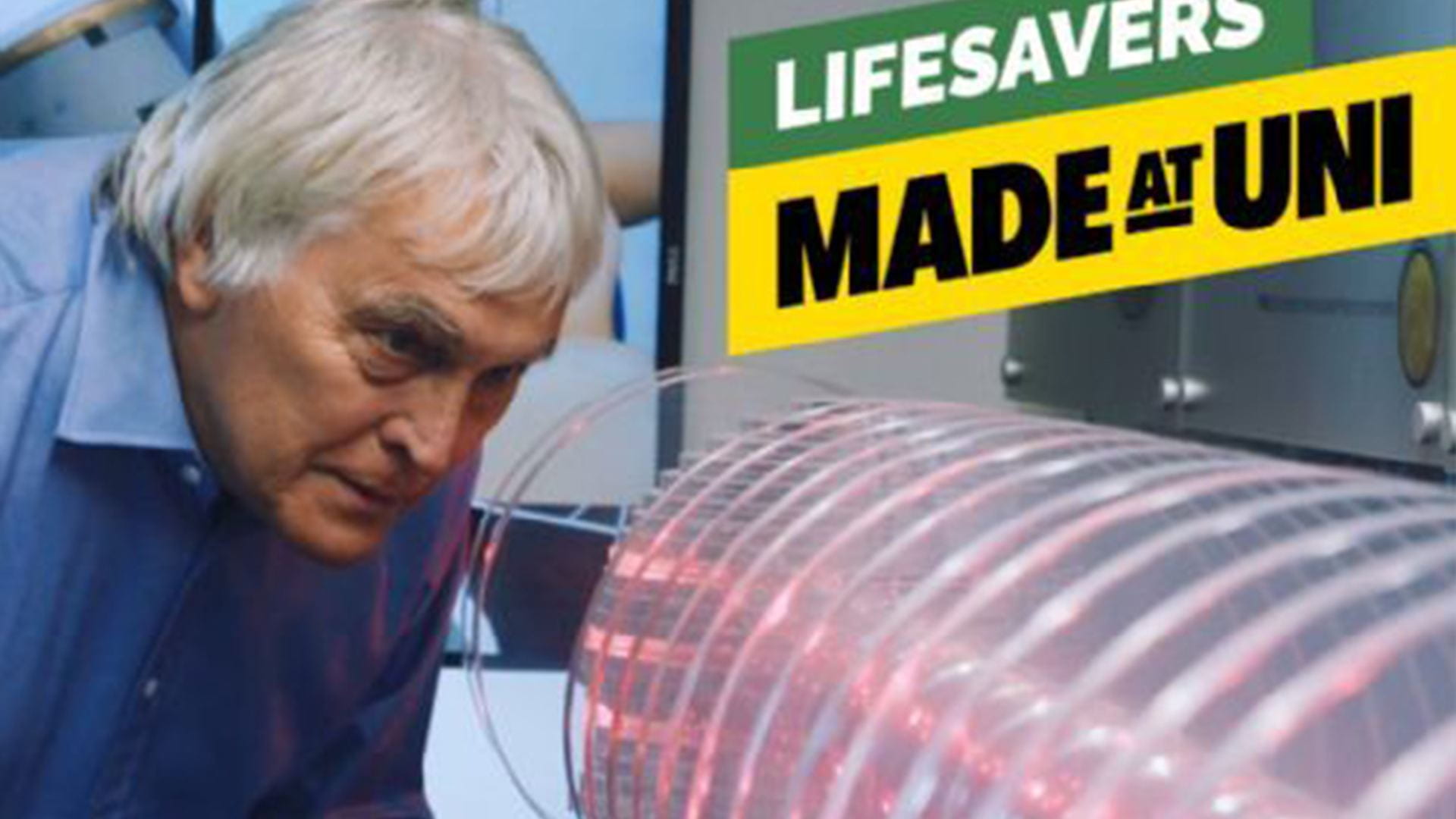A Distinguished Professor from The University of Lincoln has today been recognised for his exceptional contribution to keeping the nation healthy in a list of the Nations Lifesavers.
Professor Nigel Allinson MBE from the School of Computer Science has been named amongst the top 100 individuals or groups based in universities whose work is saving lives and making a life-changing difference to our health and wellbeing. The list has been compiled as part of Universities UK’s MadeAtUni campaign, which brings to life the impact of universities on everyday lives.
The £3.25m Optimising Proton Therapy Through Imaging (OPTIma) project, funded by the Engineering and Physical Sciences Research Council, uses the same proton beams that are used to treat cancers in a medical imaging system.
Dubbed the ‘Holy Grail’ for this kind of treatment, the prototype system creates three dimensional images of a patient’s anatomy allowing radiographers to more accurately plan the optimal treatments for each patient. This enhanced planning can also reduce the dosage of radiation required and more closely target even hard to reach cancers in areas such as the head, neck or spine and tumours close to vital organs.
The next stage of the project will see OPTIma installed at one of two new NHS Proton Beam Therapy Centres – The Christie Proton Beam Therapy Centre in Manchester.
The Nation’s Lifesavers are fighting diseases, helping new parents and children enjoy the best start in life, supporting older people and improving our mental health and wellbeing. The selection reveals the amazing use of technology, such as drones to fight malaria, a smart glove for communicating sign language and robots helping older people.
Universities from across the country were invited to nominate an individual or group who has made a significant contribution to the nation’s health and wellbeing. Over 100 universities from Plymouth to Dundee submitted a nomination.
Professor Allinson said: “I’m thrilled to be featured as one of the Nation’s Lifesavers. These innovations in medical imaging can make a real difference to people’s lives by enabling clinicians to plan more accurately and create the optimum treatment for each individual patient. Not only that, but this technology also has the potential to significantly improve patient’s quality of life by minimising side effects.”
Professor Dame Janet Beer, President Universities UK, said: “When people think of lifesavers they tend to focus on the dedication and skill of our doctors, nurses, carers, and paramedics – many of whom are trained at universities. Every day, up and down the country, universities are also working on innovations to transform and save lives. Research taking place in universities is finding solutions to so many of the health and wellbeing issues we care about and the causes that matter.
“By proudly working in partnership with charities, the NHS and healthcare organisations, universities are responsible for some of our biggest health breakthroughs and in revolutionising the delivery of care.
“This campaign is a chance to bring to life the wonderful and often unexpected work going on every day in our universities and to celebrate some of the people working to make a life-changing difference to the nation.”
Research shows the public are proud of UK universities but have little understanding of the benefits they bring, with most not being aware that UK academics are behind many of the discoveries that save lives and keep up healthy. The MadeAtUni campaign gives the public an insight into some of this work and celebrates those who made it happen. More information on the campaign can be found on the dedicated website: www.madeatuni.org.uk
